Search
Search Results
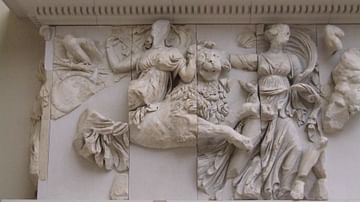
Definition
Rhea
Rhea (also spelt Rheia) is a Titan and a mother goddess in Greek mythology. She is the daughter of Gaia (Earth) and Uranus (Heaven) and the mother of the great deities of Mount Olympus. Rhea was closely associated with the Phrygian (Anatolian...
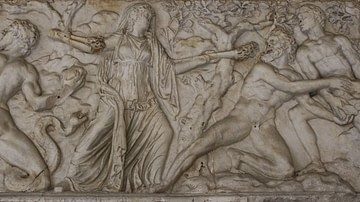
Definition
Leto
Leto is a Titan and the mother of the gods Apollo and Artemis in Greek mythology. Leto's twin children were the result of an amorous encounter with Zeus, and to avoid his wife Hera's wrath, the Titaness was obliged to give birth on the remote...
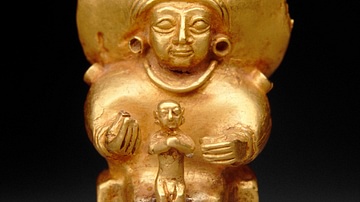
Definition
Sauska
Sauska (also known as Shaushka, Sausga, and Anzili) was the Hurrian-Hittite goddess of fertility, war, and healing. She was worshipped throughout the region known as Hanigalbat (present day Iraq, Syria, and Turkey) from the time of the Hurrians...

Definition
Sargonid Dynasty
The Sargonid Dynasty was the last ruling house of the Neo-Assyrian Empire from 722-612 BCE, beginning with the reign of Sargon II and ending with fall of the Neo-Assyrian Empire. Some of the most famous kings in the history of Assyria come...

Definition
Agesilaus II
Agesilaus II (c. 445 – 359 BCE) was a Spartan king who won victories in Anatolia and the Corinthian Wars but who would ultimately bring total defeat to his city through his policies against Thebes. When Sparta lost the crucial battle of Leuctra...
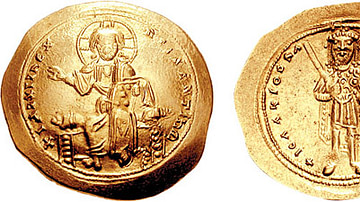
Definition
Isaac I Komnenos
Isaac I Komnenos was the Byzantine emperor from 1057 to 1059 CE. Although his reign was brief, he was known for being a capable and militarily astute general and emperor. As the first emperor to lead troops himself in battle in over 30 years...

Article
The Journeys of Paul the Apostle
The journeys of Paul the Apostle, as the New Testament relates in the Book of Acts, started with his conversion experience on the way to Damascus, after which instead of seeking to thwart the growing Christian movement, he helped spread it...

Article
Gobekli Tepe - the World's First Temple?
Located in modern Turkey, Göbekli Tepe is one of the most important archaeological sites in the world. The discovery of this stunning 10,000 year old site in the 1990s CE sent shock waves through the archaeological world and beyond, with...
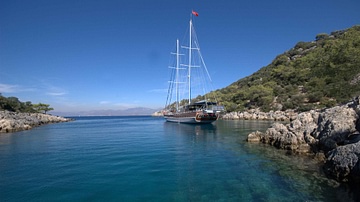
Article
Travelling Along the Lycian Way
The Lycian Way follows over 540km (335 miles) of ancient roadways, mule tracks and shepherds' paths along one of Turkey's most remote and untouched coastlines. Theresa Thompson discovers the joys of following the trail and finding the ancient...
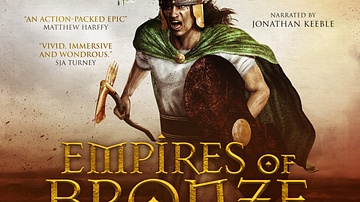
Interview
Author Interview: Son of Ishtar by Gordon Doherty
Today we sit down with Gordon Doherty to discuss his new book Empires of Bronze: Son of Ishtar. Based in the dark and cold north (i.e. Scotland), Gordon has written extensively on ancient Greece and Rome. His new novel, however, takes us...